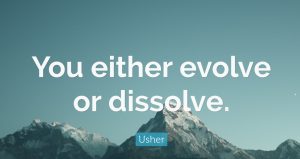《自律養生實踐家之旅353》 即事窮理,養生之途

萬籟俱寂,一人靜坐於星空下,思緒不再翻湧,只剩自己與自己的無聲對話。
那一刻,人生最真實的樣貌浮現,沒有欺瞞,沒有修飾,唯有神識與意識之間坦誠的交流。
主題是「人生的目的」,經驗與記憶裡仍存有不少疑惑,意識卻耐心聆聽神識的盤問,毫無為自己辯護的意圖。
與一般生命經驗最大的不同,在於那份虛心請益:沒有面子的考量,沒有情緒的干擾,也沒有圓謊的必要。
什麼時候,我們才有與自己真誠對話的機會?既能聽見真話,也能說出實話。也許,那不一定是一次關鍵的對話,而是生命裡難得做出的無雜音決定。
有人選擇上山閉關,有人遠離家人成為僧人,他們或許都在營造與自己真實相遇的環境,或許是厭倦了虛假,或許只是渴望回家。
我曾以為,那些尋找生命意義的人,具備我所沒有的慧根;也曾以為,他們敢於回歸本我的勇氣並非我所能企及,於是我以「人各有志」安慰自己。
直到有一天,直覺傳來一則訊息:「人都需要那片寧靜時刻,而那片無雜音的寧靜,或許並非外在的安靜。」
一首歌能讓我精神振奮,也能使我思緒紛亂,歌未曾改變,改變的只是心境。寫作有時需要寧靜,有時卻需要音樂相伴,關鍵在心境是否安定。
我曾在隔壁鄰居施工的嘈雜聲中安然入定,那次經驗讓我重新解讀「萬籟俱寂」:不是仰望繁星的寧靜,而是心中無念的安穩。
雜音或許干擾旁人,雜念卻足以困住自己。眼、耳、鼻、舌、身、意,既能是美麗的誘惑,也能是煩惱的雜訊。
十多年前,生命中出現一位引路人。「不吃而尋獲健康」的一句話,讓我體悟「庸人自擾」的因果。從與身體的對話裡,我竟尋得一條隱密的養生之路。
我不曾如此用功讀書,也不曾如此專心寫作,不可思議的轉變,都源於與自己真正相遇,並透過身體的引導。
這一刻既是結果,也是起點。回溯在母親與妻子遺體前痛哭的場景,悔恨在那一瞬翻轉,推動我邁向進階的人生。
「不在乎別人怎麼說」對我而言是重大突破。那不是「耳順之年」自然修得的功夫,而是身體之道反覆交給我的修練。
生命一次次逼我在「有錢」與「值錢」之間取捨,我在即事窮理的養成階段裡,明白無止境的學習才是快樂的泉源;而追逐金錢,必然滿身傷痕,而且徒增重負。
直覺不斷低語:「就繼續精進吧」,我在閱讀中體會生命的樂趣,也在寫作中接受虛空贈予的靈感。
然而,最有效率的精進方式,不僅是閱讀,也不僅是寫作,而是授課。備課、講課、課後與學員的對話,都是自我精進的契機。
講台宛如舞台,授課如同演出,那是我最投入的時刻,也是我最真實的付出。
我不是天生的演說家,更不是演員,我只是希望誠實傳達真相的說客;我只是願意以有限的力量,記錄並推動讓世界一點一滴變好的人。
「學無止境」是真實的,「學如逆水行舟」是真實的,「不進則退」更在我的養生教學路上反覆驗證。
必須督促自己持續進步,也不得不直面退步漩渦的威力。
不願看見自己停止閱讀,不願走到無法再寫作的一刻,更不願放下「身體之道」的傳講。然而,那一天必然會來臨。
總能預見:即使歷經篳路藍縷,即使走過荊天棘地,當那一刻到來時,我仍能無悔的感動落淚,因為我已經不虛此生。
(你不是進化,就是溶化。)
Investigating Life Through Experience, Walking the Path of Nourishment
When all is silent, I sit alone beneath the starry sky. Thoughts no longer surge; only a voiceless dialogue remains—between myself and myself.
In that moment, the truest image of life appears: no deception, no adornment, only an honest exchange between spirit and consciousness.
The theme is the purpose of life. Within memory and experience linger many doubts, yet consciousness patiently receives the questioning of spirit, without the slightest intent to defend itself. What sets this apart from ordinary encounters is the humility of inquiry: no concern for saving face, no interference of emotion, no need to cover lies with more lies.
When, truly, do we have the chance to speak sincerely with ourselves? To not only hear the truth but also speak it. Perhaps such moments are not about one decisive conversation, but about those rare, noiseless decisions we make in life.
Some choose to retreat to the mountains, some leave their families to become monks. Perhaps they seek an environment where they can meet their truest selves; perhaps they are weary of falsehoods; perhaps they simply long to go home.
I once believed those who sought the meaning of life possessed a spiritual root I did not; I also thought their courage to return to their true selves was beyond me. And so I comforted myself: each person has their own path.
Until one day, intuition delivered a message: All people need that moment of stillness, yet the silence free of noise is not necessarily an external quiet.
A song can lift my spirit or scatter my thoughts. The song remains unchanged; only my state of mind shifts. Writing sometimes requires silence, other times the accompaniment of music. The key lies in whether the heart is settled.
Once, amidst the noise of a neighbor’s construction, I entered deep meditation with ease. That experience redefined “absolute silence” for me: not the quiet of gazing at countless stars, but the calm of being free of thought.
Noise may disturb others, but inner distraction is what truly unsettles us. Eyes, ears, nose, tongue, body, and mind—each can be a source of beauty or a clamor of affliction.
More than ten years ago, a guide appeared in my life. A single phrase—“health found through not eating”—revealed to me the cause and effect of “troubles of one’s own making.” Through dialogue with my body, I discovered a hidden path of nourishment.
Never had I studied with such diligence, nor written with such focus. Every unimaginable change arose from encountering myself anew, led by the guidance of the body.
That moment was both a culmination and a beginning. Looking back to the scene of weeping before the bodies of my mother and wife, regret in that instant turned into a force propelling me into a higher stage of life.
“To not care what others say” was for me a great breakthrough. It was not a skill naturally attained with age, but a lesson imparted repeatedly by the Way of the Body.
Life has often forced me to choose between being wealthy and being worthy. In this stage of investigating life through direct experience, I learned that endless learning is the fountain of joy; whereas chasing money leaves scars and adds only burdens upon burdens.
Intuition whispers again and again: keep refining yourself. In reading I taste the joy of life, and in writing I receive the gifts of inspiration sent forth from the void.
And yet, the most efficient way to refine oneself is not only through reading, nor only through writing, but through teaching. Preparation before class, the act of teaching itself, and the conversations with students afterward—all are opportunities for self-cultivation.
The lectern is like a stage; teaching is another form of performance. It is the moment when I am most immersed, and when I give of myself most truly.
I am not a born orator, nor a performer. I am only one who wishes to honestly tell the truth to those who listen; I am merely someone who hopes, with limited effort, to record and help nudge the world toward something better.
“Learning never ends”—this is true. “Learning is like rowing against the current”—this too is true. And “not advancing means retreating” is proven time and again on my path of teaching the Way of the Body.
I must urge myself to keep moving forward, while also facing the pull of regression.
I do not wish to see the day when I stop reading. I do not wish to reach the moment when I can no longer write. Least of all do I wish to lay down the teaching of the Way of the Body. And yet, that day will inevitably come.
Still, I can already foresee this: even if the path is rugged, even if thorns and brambles block the way, when that final moment arrives, I will weep with gratitude, without regret—because my life will not have been lived in vain.


